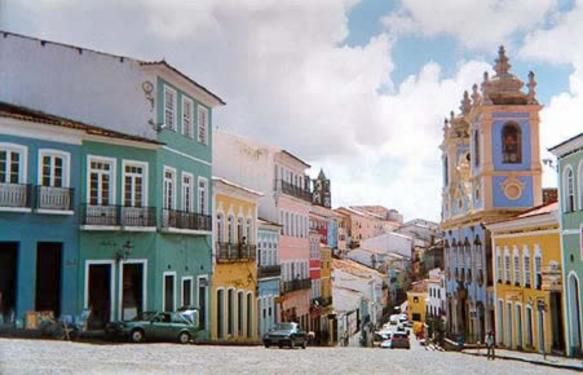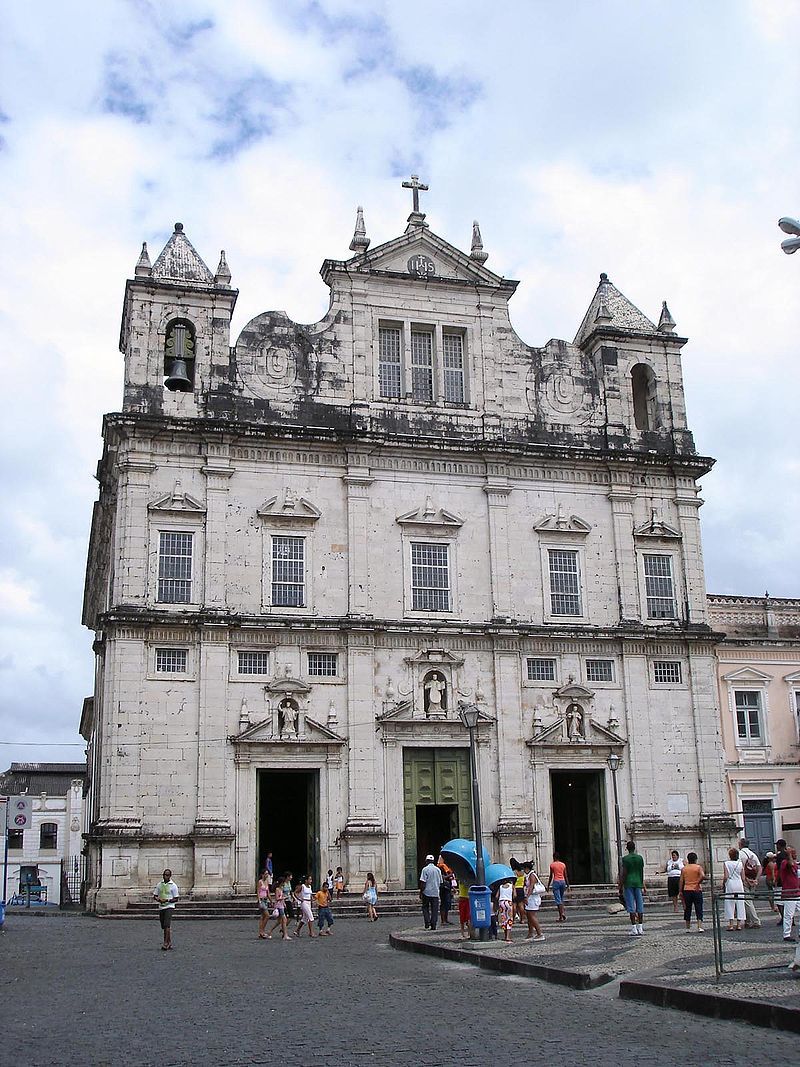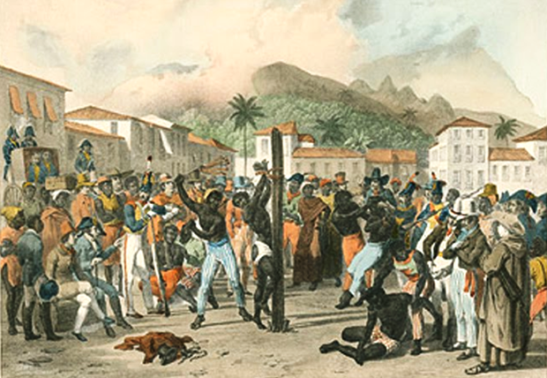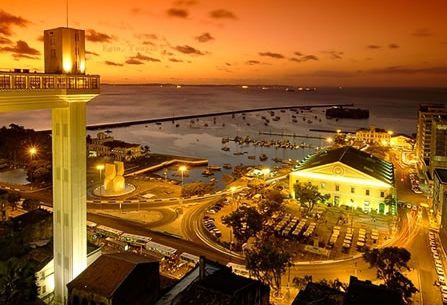
Part of that understanding came from the journey I took over four months in 1981 traveling 20,000 kilometers through Brazil, almost entirely by bus. I visited the Casa Grandes; the big fazendas; the splendid beachfront apartments; the glass and concrete wonder of Brasília - the new El Dorado! I walked the sands of Porto Seguro; I rejoiced in the atmosphere of the Bahia; I stood in silence between sepulchral hills at Canudos. I climbed another hill, too, to gaze down on Vila Rica do Ouro Preto and imagine the handicapped sculptor Aleijadinho moving along Vila Rica's cobbled streets. I heard the muffled drum of tyranny presaging the last act in the drama of Tiradentes, martyr of Brazilian independence.

Salvador, Bahia July 7 —— July 14

Kill time noon to 4.30 including bumping into exuberant Germans who were in taxi with me Tuesday a.m. They've “seen it all” - three hour tour and night of folklore and are leaving for Rio at 2.30! At 4.30 find Salvador Brazil Cathedral Antonietta (de Aguiar Nunes) waiting in the doorway of the Cathedral. Go through my routine "introduction" again but this time find a perfect gem. A history professor mastering in social work, Antonietta “knows it all,” genuinely.
Plunge into a three conversation, then to dinner at Pelourinho Square (restored by UNESCO) at "hotel school" that offers forty kinds of Bahian cuisine = African modified by spices of East (as per fleets from India.) Tomorrow we're to meet at nine to continue the “researches.” The Good Lord be praised! Despite the Henry Hitch, all augers well for the Brazilian adventure.
July 9 — A brilliant day! Won't attempt to repeat what's in my working notebooks. (Besides my journal, I filled a pile of notebooks as I went along.) This augers brilliantly for success of Brazil. Keep it up Uys. Antonietta's contacts are stupendous, her enthusiasm unlimited. Now to bed, for I'm exhausted but in these early days of the journal, determined to make some entry, no matter how insignificant.
July 10-11 — Missed two nights' entries. Not through “sloth” but time! July 10 occupied with “re-creation” of 18th century Bahia. How the Portuguese must've loved this city! With its narrow, hilly cobbled streets, it is strong reminiscent of Lisbon and Coimbra. Most impressive is the Pelourinho - Pillory Square - with the old townhouses of the wealthy. The Pillory was moved here at the request of the Jesuits - it had previously been near the Cathedral - the lash and the bell/choir aren't compatible.Before leaving Portugal for Brazil in July 1981, I prepared a list of research objectives sent in advance to potential contacts in Brazil's cultural and educational ministries, historians and others whose names had been suggested by sources I'd met in Portugal:n mind I have to adopt some kind of organized strategy for the research stage or I'll never put it all together.
Plunge into a three conversation, then to dinner at Pelourinho Square (restored by UNESCO) at "hotel school" that offers forty kinds of Bahian cuisine = African modified by spices of East (as per fleets from India.) Tomorrow we're to meet at nine to continue the “researches.” The Good Lord be praised! Despite the Henry Hitch, all augers well for the Brazilian adventure.
July 9 — A brilliant day! Won't attempt to repeat what's in my working notebooks. (Besides my journal, I filled a pile of notebooks as I went along.) This augers brilliantly for success of Brazil. Keep it up Uys. Antonietta's contacts are stupendous, her enthusiasm unlimited. Now to bed, for I'm exhausted but in these early days of the journal, determined to make some entry, no matter how insignificant.
July 10-11 — Missed two nights' entries. Not through “sloth” but time! July 10 occupied with “re-creation” of 18th century Bahia. How the Portuguese must've loved this city! With its narrow, hilly cobbled streets, it is strong reminiscent of Lisbon and Coimbra. Most impressive is the Pelourinho - Pillory Square - with the old townhouses of the wealthy. The Pillory was moved here at the request of the Jesuits - it had previously been near the Cathedral - the lash and the bell/choir aren't compatible.

I am slowly conditioning myself to life as lived here. On Thursday evening Professor Antonietta and I are invited to plantation 70 kilometers north with loan of car. On Friday evening the invite falls through. "A's" sister has arrived. "A" needs car and so on. Change plans. I wander streets by myself.
In afternoon we go to the market, Mercado Modelo. An explosion of life Bahianese! Essentially a tourist/ handicraft market, it has a restaurant attached to it. A vast meeting place where beer flows like water and people sing the songs of Bahia. For three hours, we eat and listen to the Afro-Brazilian rhythms. Again bringing a thought of the “release” from the slave quarters. (My South African heritage shames me in this blackest of all Bahiana cities!)

Back to Antonietta's house in the oldest quarter and for four-and-a-half hours she sits reading my synopsis. Her verdict is ENTHUSIASTIC! And a good deal more! Few Brazilians know the history as ELU, she says. Encouraging.